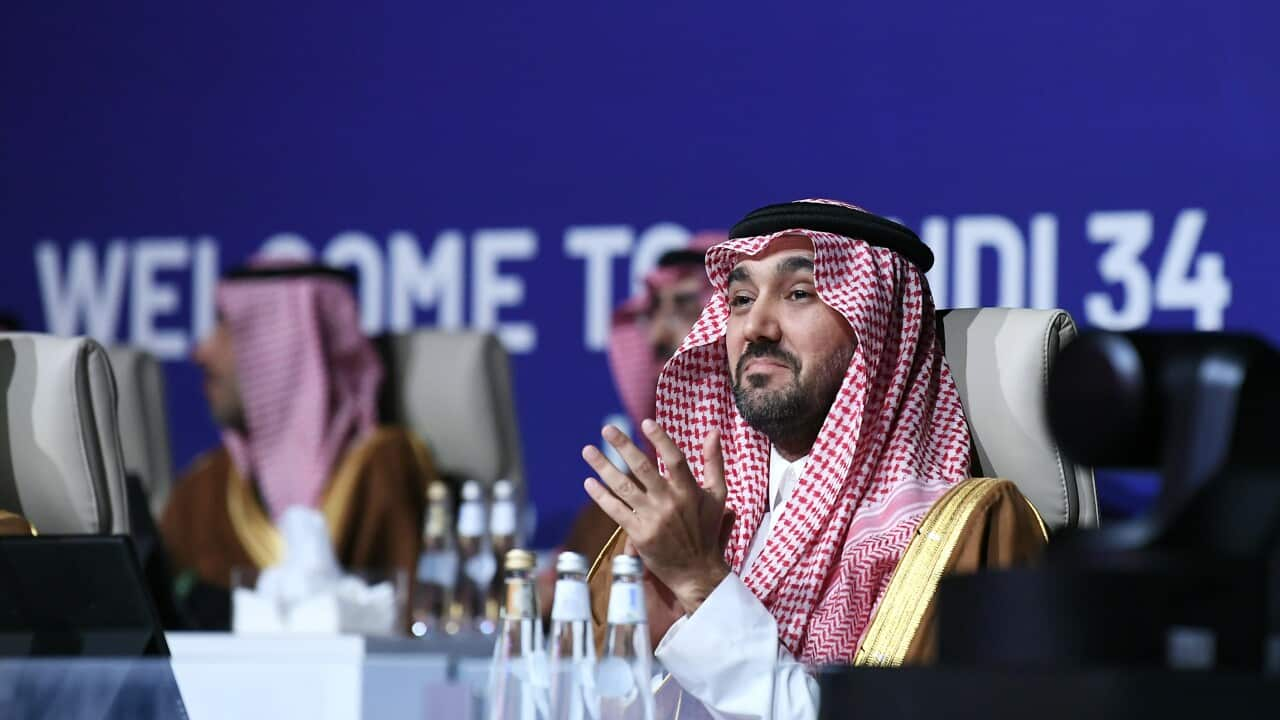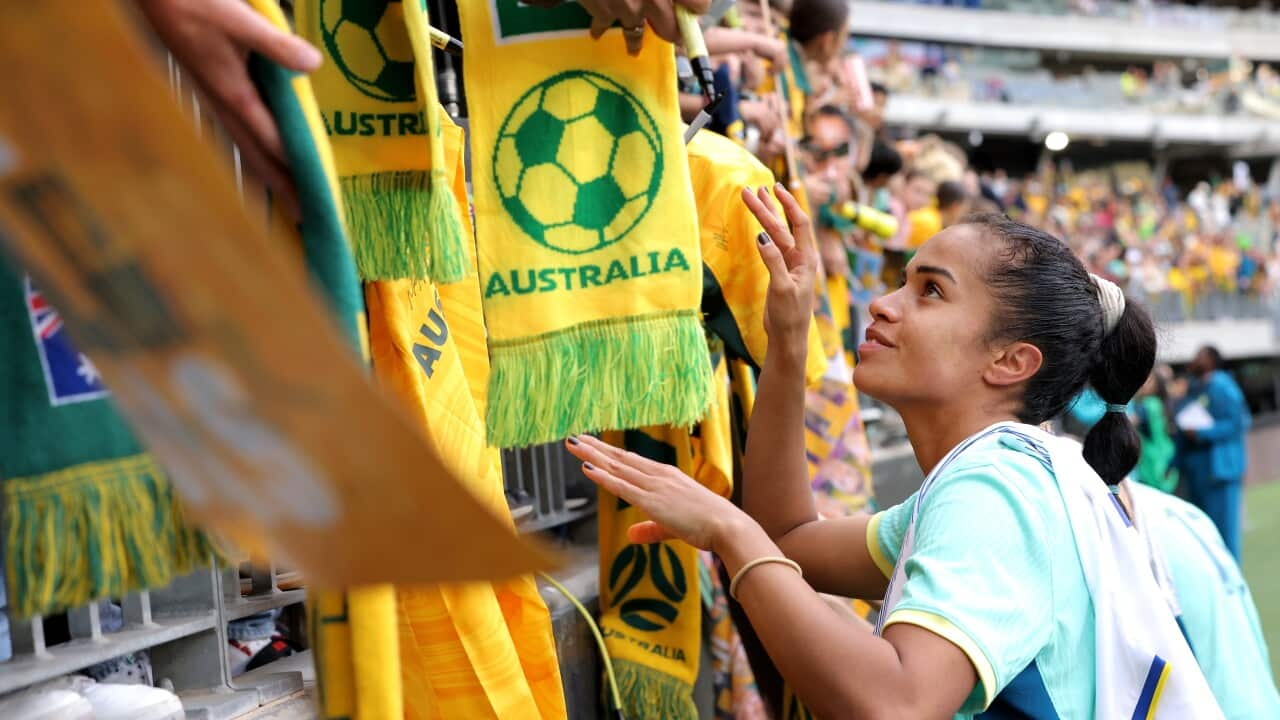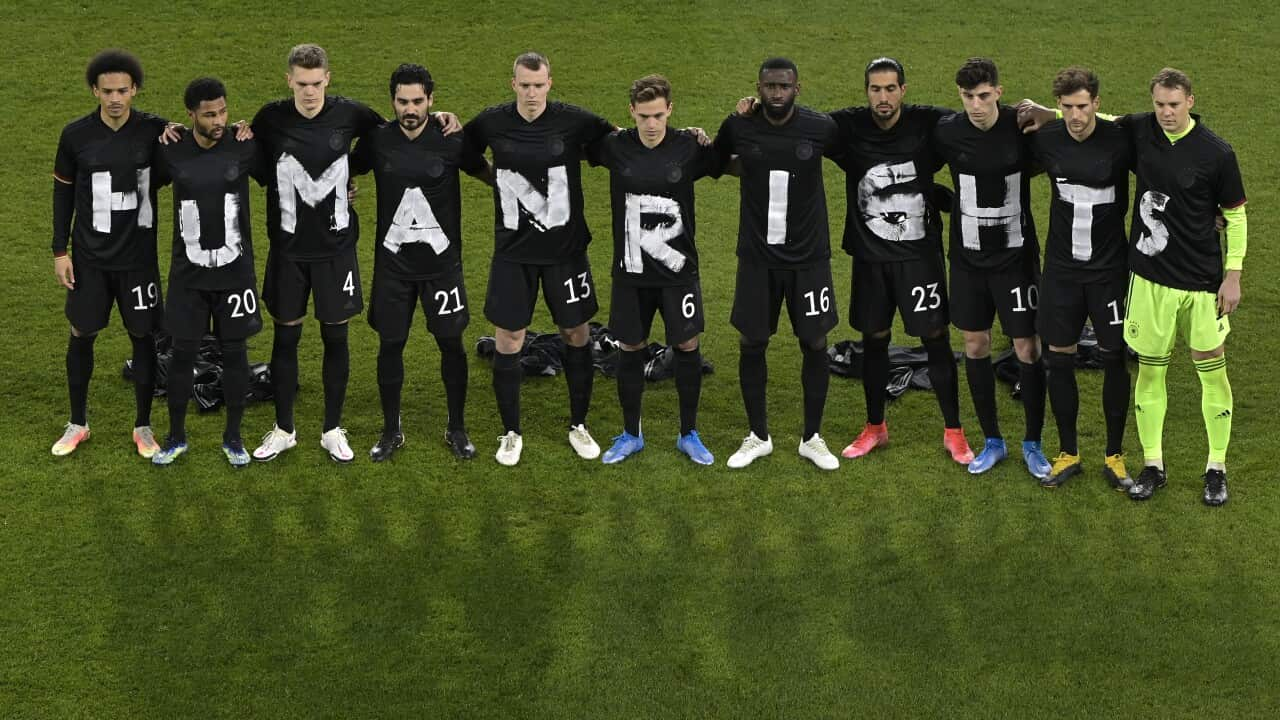Rights organisations strongly criticised FIFA on Wednesday after world soccer's ruling body officially awarded the 2034 men's World Cup to Saudi Arabia.
Hosting the global showpiece tournament is the pinnacle of as it seeks to improve its international image.
"FIFA's reckless decision ... will put many lives at risk," Steve Cockburn, Amnesty International's head of labour rights and Sport, said in a statement issued by a collection of human rights organisations, migrant workers' groups , international trade unions and fans' representatives.
Meanwhile, England's Football Association said it had received assurances from Saudi Arabia that LGBTIQ+ fans would be "safe and welcome" at the 2034 World Cup, explaining its support for the successful bid from the Gulf state.
Shortly after confirmation of the hosting decision, the English FA said its board had met Saudi football chiefs last month to discuss the bid in detail and had "asked them to commit to ensuring all fans would be safe and welcome in Saudi Arabia in 2034 -- including LGBTQ+ fans".
"They assured us that they are fully committed to providing a safe and welcome environment for all fans."
'We've learned a lot'
FIFA also confirmed on Wednesday that Morocco, Spain and Portugal will be joint hosts of the 2030 World Cup, in which three games will also be played in South America.
The 2030 and 2034 World Cups each had only a single bid, and both were confirmed by acclamation.
The awarding of the World Cup to Saudi Arabia will make the issue of human rights a major talking point again, just as it was two years ago when the tournament was staged in Qatar.
An Amnesty report in 2021 said practices such as withholding salaries and charging workers to change jobs were rife in the 2022 World Cup host nation.
Qatari authorities said the criticism was unfair and misinformed, pointing to labour law reforms enacted since 2018 and accusing critics of racism and double standards.
Asked on Wednesday what lessons the Saudi bid team had learned from Qatar, the kingdom's sports minister Abdulaziz bin Turki Al-Faisal told Reuters that the tournament had given them "a good insight on what needs to be done properly".
"I think controversy will happen in anything you do and we've learned a lot from their experience," he said.
'Astonishing whitewash'
FIFA gave the bid a high technical score, a move Amnesty called an "astonishing whitewash" of the country's human rights record.
Saudi Arabia has banned labour unions, does not have a minimum wage for migrant workers, and enforces the "kafala" system of foreign labourer sponsorship.
Kafala binds migrant workers to one employer and prevents them from leaving the kingdom without the employer's approval. Rights groups say it leaves workers vulnerable to exploitation.
Saudi Arabia denies accusations of human rights abuses and says it protects its national security through its laws.
The Saudi government communications office, the country's football association and FIFA did not immediately respond to requests for comment.
However, during closing remarks at Wednesday's congress, FIFA president Gianni Infantino said the organisation was "aware of critics and fears".
"I fully trust our hosts to address all open points from this process and deliver a FIFA World Cup which meets expectations," he added.
Meanwhile, the English FA said it "will work with FIFA and (European governing body) UEFA to ensure that commitments to respect all human rights are delivered".
"We believe that hosting World Cups can be a catalyst for positive change, which is best delivered by working collaboratively in partnership with host nations."

Saudi fans celebrate as Saudi Arabia is announced as the host nation for the FIFA World Cup 2034 Host. Source: Getty / Francois Nel
"Now employees have the freedom of choice to move from one employer to the other," Hammad Albalawi said.
"A month and a half ago, the government announced a new insurance policy, meaning that if any company goes into bankruptcy, the government can step in and ensure workers are paid their dues."
There were 13.4 million expatriate workers in Saudi Arabia in 2022, the last time a census was conducted, accounting for 42 per cent of the population.
Rights abuse claims
"Based on clear evidence to date, FIFA knows workers will be exploited and even die without fundamental reforms in Saudi Arabia, and yet has chosen to press ahead regardless," the statement signed by Amnesty and other groups said.
"The organisation risks bearing a heavy responsibility for many of the human rights abuses that will follow."
Lina Alhathloul, head of monitoring and advocacy, ALQST for Human Rights, a Saudi diaspora human rights organisation, said the awarding of the World Cup to Saudi Arabia was "disheartening".
In a separate statement, the Business and Human Rights Resource Centre said one stadium already under construction for the tournament had been linked to alleged exploitative labour of 10-hour shifts in extreme heat.
"FIFA, its sponsors, and multinational companies ... have a legal and ethical responsibility to respect human rights," said Phil Bloomer, BHRRC's executive director.
Ronan Evain, the executive director of Football Supporters Europe, said of the 2034 decision: "Today is a dark day for human rights and football as a whole."













